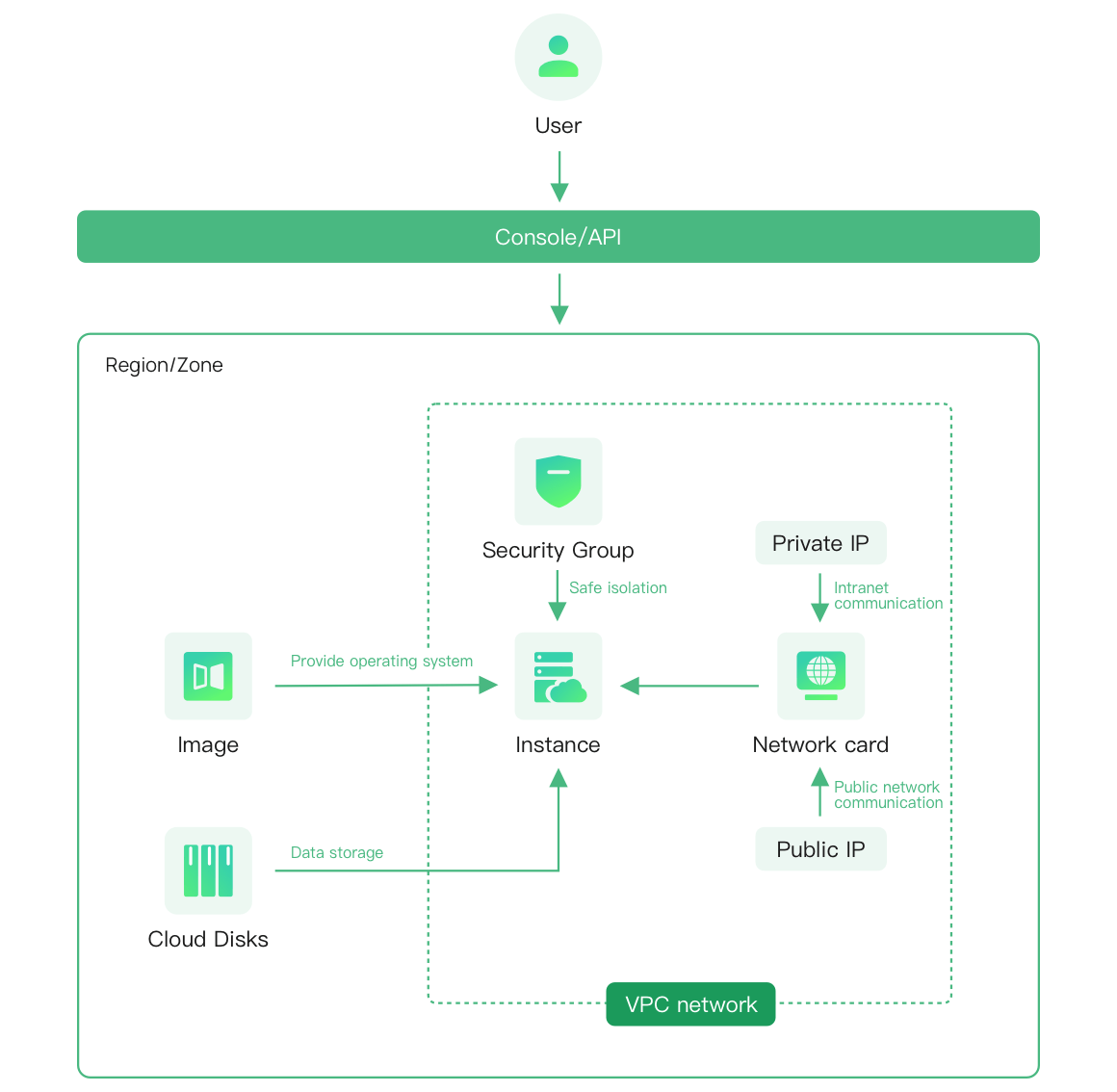Cloud Servers Overview
Last updated: 2024-09-14 14:58:00
What are Cloud Servers?
Cloud servers (Elastic Compute Service) are a collection of resources consisting of CPU, memory, cloud disks, etc., where each type of resource logically corresponds to the computing hardware entity in the data center. You can apply for resources that match your needs in terms of size and specifications, for running different workload tasks, without having to worry about the location and status of the physical servers.
Cloud Server Pricing
Cloud servers support both annual/monthly and pay-as-you-go pricing. For more details, please refer to the product pricing.
Product Architecture
Architecture Description
| Product | Description |
|---|---|
| Instances | Virtual computing resources in the cloud, including CPU, GPU, memory, operating system, network, disk, and other basic computing components. Different types of instances provide different computing and storage capabilities suitable for different application scenarios. |
| Images | Images provide the essential operating system and application data necessary for instances, enabling users to quickly create cloud server instances based on images. For more information, please refer to Images. |
| Cloud Disks | Cloud disks is a distributed block storage product for virtualization scenarios, used to store operating systems or business application data of cloud servers. It has high performance similar to local disks, as well as high availability, reliability, elastic scalability, and self-repair capability. For more information, please refer to Block Storage Disk. |
| Snapshots | Snapshots are backups of cloud disk data at a specific point in time. When data is lost or malfunctioning, you can use snapshots to roll back cloud disk data and recover lost data. For more information, please refer to Snapshots. |
| VPC Network | VPC Network constructs an isolated virtual network environment for cloud resources, which can be self-configured and managed, where different private networks are mutually isolated from each other. For more information, please refer to Private Network. |
| Elastic Public IP | Elastic Public IP establishes a connection between a cloud server and the external network. For more information, please refer to Elastic Public IP. |
| Security Groups | Security groups are logical groupings that provide access policies for cloud servers with common security needs and mutual trust, and can be used to control network access of one or more cloud servers, which is an important means of network security isolation. For more information, please refer to Security Groups. |
| Key Pairs | Key pairs are a secure login authentication method and belong to asymmetric encryption, consisting of public keys and private keys, which are only supported in Linux instances. For more information, please refer to Key Pairs. |
Architecture Diagram
